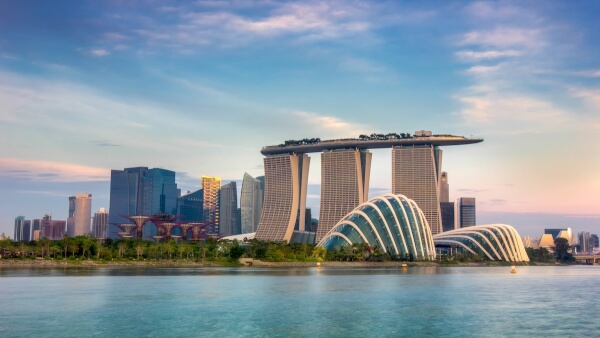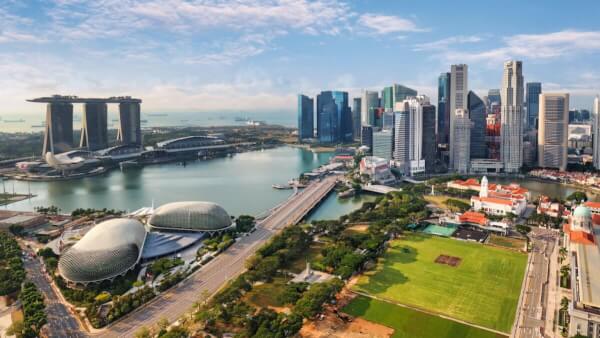Top 7 real estate agencies in Singapore
Discover the Top 7 real estate agencies in Singapore with our detailed guide. Navigate the real estate market with expert insights and reviews.

One important decision, if you’re moving to Singapore with family, is how to ensure your children have the best possible education. Luckily, you're headed to the right place, as students in Singapore attained the highest marks in the PISA student assessments in 2016, across all subjects tested. Of course, the standard and levels of attainment vary across different schools, but you won't struggle to find a great school for your children in Singapore.
If you’re considering your options, you can compare the standard of education in Singapore with that available in your home country, with the PISA assessment framework from the OECD.
Whether you’ve already got your Singaporean work visa, and have your move fully planned - or are just starting to think about life overseas, it helps to know a little about the education options in Singapore.
Here's a quick guide to get you started.
Pre-school is offered from age three, in Singapore, with primary schooling from the age of around seven. After primary school, children move onto secondary school, which runs for students aged from around 12, to 16 or 17. To go to university, teenagers must attend a two or three year preparation course, which is optional, with places awarded on merit. Schooling in Singapore is structured in a fairly complex way, with many different school types, although the Ministry of Education does provide a handy road map to explain your options.
In the Singaporean system, English is the language of instruction for most subjects, although all students from a very early age will also study their ‘mother tongue’ language, and often other languages which are commonly used in the region.
| Pre-school | Optional for ages 3 - 6Pre-schools are run by companies, community groups and charities, so fees may be payable |
|---|---|
| Primary School | Compulsory from age 7Education at primary level is free |
| Secondary School | Mandatory secondary education runs for five grades, typically from age 12 to 17 |
| Optional Post Secondary (University preparation or vocational training ) | After completing the mandatory stage of education, students who want to progress to university attend a ‘pre-university’ centre for 2 or 3 years of further studyAlternatively, vocational training is offered |
Full details of how to enrol your children in Singaporean school at any age, is available on the Ministry of Education website. Places are available for children aged between around three and six, with fees often payable. Pre-schools are operated by community groups and charities as well as independent companies.
The cost of pre-school varies enormously, and the best schools are oversubscribed. To give an example, the monthly fee for the government run MOE kindergarten is SGD 320 for a Singapore Permanent Resident. Some preschools offer financial assistance with fees for families who need it.
From the age of six it’s compulsory to attend primary school in Singapore. This stage of schooling is provided free of charge, and there are penalties for parents who don't comply. If you want to homeschool your child, or have them attend a religious institution which isn't managed by the ministry of education, you have to apply for permission to do so from the authorities.
Primary school lasts for sixth grades, split into a four year foundation period, and two years of ‘orientation’ to prepare children for secondary education. The main aim of the primary years is to grasp English language, the local mother tongue, and maths. Students can select subjects which play to their strengths beyond these core areas.
The compulsory stage of secondary education lasts for four or five years. At the end of this period, all students take an exam, and can then choose to continue to pre-university education if they score well. Pre-university education consists of a two or three year course which is specifically tailored to students who wish to attend university. Places are awarded on merit and are fiercely competitive in the best institutions.
The alternative is to continue with ‘post-secondary’ education at a technical institute or polytechnic, which is aimed at developing more vocational skills.There’s a wide range of institution types, which students can choose, all handily described on the Ministry of Education website.
The school year in the Singaporean state system is arranged into semesters. The first semester typically runs from January through to May, with a vacation to follow. Then from July you have the second semester, which runs until a break in November and December. There’s also a shorter break in the middle of each semester.
It’s worth noting that this calendar applies to state schools only - in private and international schools the western standard calendar, with a long summer break and several weeks vacation at Christmas, is far more likely to be adopted.
Although education in Singapore is free, all families must pay small ‘miscellaneous’ fees, which are explained by the Ministry of Education. These fees are fairly small for public schools, but don't necessarily cover additional costs for things like uniforms, transport and school materials. Independent schools, even if part government funded, can charge fees beyond the small amounts seen in the public school system. If you do not choose the state system and decide to find a fully private or international school, the costs are higher.
Singapore has a huge range of international schools, teaching in English and other major world languages. Schools might use the International Baccalaureate syllabus, or a variant of another national curriculum such as the American core or Australian standard curriculum. International schools are generally of a high standard, and therefore typically competitive, with testing and interviews to secure admission. You can expect the fees to vary widely depending on the specific school and the programme they offer. Fees of anything from USD 15,000 to USD 30,000 a year aren't uncommon, with extras such as registration fees, deposits and technology costs added on top.
Singapore is a fantastic place for expats, and the schooling there is truly world class. However, whichever education route you decide is best for your family, there will be costs involved, and you don’t want to pay more than you have to. If you’re funding your child’s education from your account back home, use Transferwise to get the real exchange rate and cut out expensive international bank transfer fees.
*Please see terms of use and product availability for your region or visit Wise fees and pricing for the most up to date pricing and fee information.
This publication is provided for general information purposes and does not constitute legal, tax or other professional advice from Wise Payments Limited or its subsidiaries and its affiliates, and it is not intended as a substitute for obtaining advice from a financial advisor or any other professional.
We make no representations, warranties or guarantees, whether expressed or implied, that the content in the publication is accurate, complete or up to date.

Discover the Top 7 real estate agencies in Singapore with our detailed guide. Navigate the real estate market with expert insights and reviews.

Moving to Singapore from the USA? Take a look at our handy guide and learn all about visa types, cost of living, and accommodation types there.

Thinking about moving to Singapore? Find out what you need to know about renting in Singapore in this guide.

Boasting first-class medical facilities and expertise, Singapore regularly sees patients flying in from all over the world seeking specialist treatment....

Healthcare in Singapore may rank amongst the best in the world, but it comes at a premium price when compared to other countries in Southeast Asia. For...

Singapore is a fantastic expat destination, offering an exciting cultural mix, great career opportunities, and world class amenities. The standard of living...